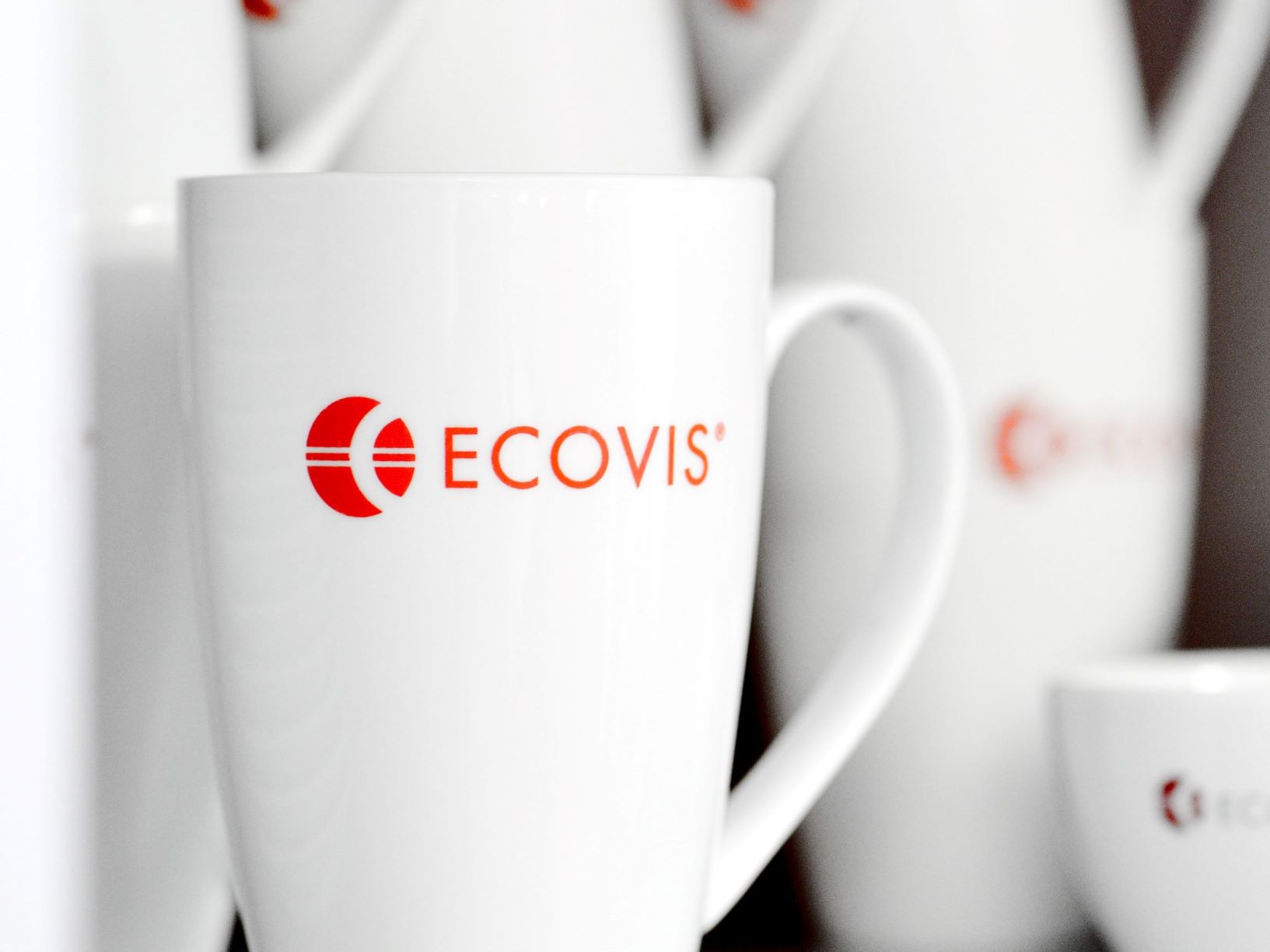Entrepreneurs are facing various changes in 2019:
1. 2019 Amendment to the Czech Trademark Act
After almost fifteen years, the first major amendment to the Trademark Act came into effect on 1 January 2019. Act No. 286/2018 Sb. [Collection of Laws of the Czech Republic]
Nr. 286/2018 Coll. transposes EU directives and regulations in Czech legislation and aligns the system of Czech trademarks with the systems in other EU Member States.
In addition to Czech trademarks defined in Act No. 441/2003 Sb., on Trademarks, as amended, it is now also possible to register in the Czech Republic international trademarks registered pursuant to the Madrid Agreement Concerning the International Registration of Marks and the Protocol relating to this Agreement at the World Intellectual Property Organisation (WIPO) WIPO - World Intellectual Property Organization and trademarks of the European Union (EUIPO) Europen Union Intellectual Property Office. In the Czech Republic, there are currently more than 1.35 million valid trademarks, including 125,000 Czech trademarks and 85,000 international trademarks.
Abolition of the obligatory requirement for graphical representation of a trademark preventing the registration of unconventional marks
A Czech trademark does not have to be capable of being represented only graphically or visually, i.e. a graphic, word or a combined mark, as it has been until now. It is newly possible to register unconventional Czech trademarks such as motion, audio visual or sound marks, 3D marks, a mark or a hologram, i.e. anything that can be represented by available technological means. Their representation will usually be in computer file formats such as MP3, MP4 or JPG. An olfactory or gustatory mark will also be permissible, but problems with their representation can be assumed in this case. The possibility to register these trademark types was upheld by the Court of Justice in 2002 in Case Sieckmann, C-273/00. The new law amendment to the Trademark Act specifies the following trademark types:
1. Word trademark
- A word trademark (a word mark), consisting exclusively of words or letters written in Latin, Arabian or Roman letters, other standard typographic characters or a combination thereof, is represented by submitting a reproduction of the sign in standard script and layout, without any graphic feature or colour.
2. Figurative trademark
- A figurative trademark (a figurative mark), consisting of non-standard characters, stylisation or layout, or a graphic feature or colour, including trademarks that consist exclusively of figurative elements or a combination of verbal and figurative elements, are represented by submitting a reproduction of the sign, whose registration is requested, showing all its elements and, where applicable, its colours.
3. Shape trademark
- A shape trademark (a shape mark), consisting of or extending to a three-dimensional shape, showing containers, packaging, the actual goods or its appearance, is represented by submitting a graphic reproduction of the shape, also including computer-generated imaging, or a photographic reproduction. The graphic or photographic reproduction may contain different views.
4. Position trademark
- A position trademark (a position mark), consisting of a specific way in which the mark is placed on or affixed to the goods, is represented by submitting a reproduction which appropriately identifies the position of the mark and its size or proportion with respect to the relevant goods. The elements which do not form part of the subject matter of the registration will be visually disclaimed preferably by broken or dotted lines. The representation may be accompanied by a description detailing how the sign is affixed to the goods.
5. Pattern trademark
- A pattern trademark (a pattern mark), consisting exclusively of a set of elements which are repeated regularly, is represented by submitting a reproduction showing the pattern of repetition. The representation may be accompanied by a description detailing how its elements are repeated regularly.
6. Colour trademark
- A colour trademark (a colour mark), consisting exclusively of a colour without contours or of a colour combination without contours, is represented by submitting
a) a reproduction of the colour and an indication of that colour by reference to a generally recognised colour code, or
b) a reproduction showing the systematic arrangement of the colour combination in a uniform and predetermined manner and an indication of those colours by reference to a generally recognised colour code; a description detailing on the systematic arrangement of the colours may also be added.
7. Sound trademark
- A sound trademark (a sound mark), consisting exclusively of a sound or a combination of sounds, is represented by submitting an audio file reproducing the sound or by an accurate representation of the sound in musical notation.
8. Motion trademark
- A motion trademark (a motion mark), consisting of or extending to a movement or a change in the position of the elements of the mark, is represented by submitting a video file or by a series of sequential still images showing the movement or change of position. Where still images are used, they may be numbered or accompanied by a description explaining the sequence.
9. Multimedia trademark
- A multimedia trademark (a multimedia mark), consisting of or extending to a combination of image and sound, is represented by submitting an audio file containing the combination of the image and the sound.
10. Hologram trademark
- A hologram trademark (a hologram mark), consisting of elements with holographic characteristics, is represented by submitting a video file or a graphic or photographic reproduction containing the views which are necessary to sufficiently identify the holographic effect in its entirety.
11. Another type of trademark
- It does not correspond to any of the above trademark types. It is represented in any appropriate form using generally available technology, as long as it can be reproduced on the Register in a clear, precise, self-contained, easily accessible, intelligible, durable, and objective manner, so as to enable the competent authorities and the public to determine with clarity and precision the subject matter of the protection afforded to its proprietor. The representation may be accompanied by a letter.
Certification mark
By analogy to the EU law (European Union certification mark), the so-called certification mark was implemented in the Czech law with more than a two-year delay. This type of trademark is designated as certification mark as early upon the submission of the application. It is capable of distinguishing the goods or services which are certified by its proprietor in respect of material, mode of manufacture of goods or performance of services, quality, accuracy or other characteristics, from the goods or services which are not so certified. Everyone who is qualified to certify goods or services for which the certification mark is to be registered and who does not carry on any business activities including the delivery of the goods or performance of the services which are being certified may apply for the registration of the certification mark. Rules applicable to the use of the certification mark must be attached to the application for the certification mark. Such rules must, among other things, contain the conditions for the use of the certification mark, including the sanctions and designation of the persons authorised to use the certification mark.
An application may be refused if the rules for the use of the certification mark conflicted with the public order or good morals or if there were a risk that the public would be misled as regards the nature or significance of the mark, in particular if it could be regarded as something else than a certification mark.
In connection with the introduction of certification marks, both the group of persons authorised to use the certification mark and the rules for using the certification mark are newly registered in the register of the Czech Industrial Property Office.
The need to file objections due to Czech trademark application refusal because of the existence of an earlier identical trademark protected for identical goods and services
Effective from 1 January 2019, the approach of the Czech Industrial Property Office to the registration of new trademarks has materially changed. Until now, the Office, ex officio, rejected to register marks that were identical with a mark that was already registered for identical goods or services, and the proprietor did not have to monitor the registered marks and could rely on the due and proper steps of the Office.
Newly, it will be up to each proprietor to monitor whether there is a pending application for the registration of a mark that is identical with its already registered mark. The new mark will no longer be registered for the sameness with an earlier mark only upon the motion of the proprietor who must submit a timely objection. Trademark proprietors will have to regularly monitor the published applications for the registration of new trademarks and react to any application for the registration of a mark that is identical with its earlier mark in a timely manner. The submission of objections will be subject to an administrative fee of CZK 1,000.
More accurate and specific definition of the trademark proprietor’s position when enforcing trademark rights
The Czech Trademark Act will newly contain express provisions prohibiting to use, during the course of trade and without the trademark proprietor’s consent, a sign as the name of a legal entity or a business name or as a part of the name of the legal entity or a business name and to use a sign in comparative advertising in a manner that is in conflict with another law or regulation.
Proprietors of earlier registered Czech trademarks will continue to have an express right to prevent the transport of goods from third countries to the Czech Republic as part of the course of trade without releasing them into circulation if such goods, including the packaging thereof, are illegally marked with a trademark which is identical with the trademark registered for such goods or which cannot be distinguished from such a trademark in its essential characteristics. This right will not apply to the marketing of the said goods in the country of the final destination.
The trademark proprietor can also prevent such preparatory acts leading to the infringement of the rights, e.g. placement of signs identical with the trademark on packaging, labels or security elements, or distribution and sale of labels, packaging, security elements or equipment showing authenticity whose use would constitute a trademark infringement.
Transfer and passage of a Czech trademark and constitutive entry in the Czech trademark register
In accordance with the principles set forth by the new Civil Code, a trademark transfer comes into effect upon the entry in the register maintained by the Czech Industrial Property Office as a public register. Any party may apply for an entry of the transfer in the register and must support it with a transfer instrument or an extract therefrom, or with another document proving a change in the trademark proprietor. Upon passage, the application must be accompanied by a document regarding the trademark passage. The trademark passage becomes effective upon the occurrence of the fact constituting the passage but is effective with respect to third parties upon the entry in the register.
Other changes in procedural regulations regarding the registration, deletion and protection of rights of a trademark proprietor
The amendment naturally contains many other changes, e.g. it is no longer possible to start a procedure regarding the declaration of a trademark invalid ex officio. The revocation of a trademark has until now had ‘ex nunc’ effects, i.e. basically as of the date on which the decision on revocation entered into legal force. A trademark may now be revoked both as of the date on which the application is filed and, upon the request of a party to the proceeding, also as of the earlier date on which the reason for revocation occurred.
ECOVIS ježek, czech legal office on the most important changes in Czech law for enterpreneurs in 2019
Mojmír Ježek on the variety of changes on the czech law regarding enterpreneurs in 2019. This year will be marked not only by new obligations, but also by more rigorous monitoring of compliance with existing obligations.
If you have questions or questions about changes, you can contact us at any time.
t: +420 226 236 600 | e: mojmir.jezek@ecovislegal.cz
2. Amendment to the Czech Criminal Code and Czech Act on Administrative Violations
The amendment to the Czech Criminal Code (Act No. 287/2018 Coll. amending Act No. 40/2009 Sb., Criminal Code, as amended, and some other laws) will come into effect on 1 February 2019. It primarily concerns the following areas:
1. Money laundering,
2. Violence against women and domestic violence,
3. Terrorism,
4. Obstruction of justice,
5. Bribery,
6. Expedited storage of data stored in a computer system or an information medium for the purpose of criminal proceedings.
Obstruction of justice in Czech Republic
The Czech Criminal Code will newly comprehensively criminalise any acts that may be characterised as obstruction of justice. Such acts are also sanctioned in Slovakia or Germany and their prohibition is contained in a range of international treaties.
In Czech criminal law, such acts could so far be sanctioned only in case of successful ‘soliciting to obstruction of justice’ as complicity in the form of organisation or abetting to any of the offences under ss. 345 to 347 of the Czech Criminal Code. Criminal liability of an organiser or abettor is derived from the principle of accessoryship of complicity from liability of the main offender, i.e. a witness, for example, must, however, at least attempt false testimony. If the main offender has not reached the attempt stage yet, the action of the accomplice is fully immune from criminal liability. Forgery and fraudulent alteration of the means of evidence or submission of such means of evidence are now factually non-punishable unless they concern an expert opinion or a public instrument.
New wording of section 347a of the Czech Criminal Code, ‘Obstruction of Justice’
According to section 347a of the Czech Criminal Code, obstruction of justice in Czech Republic is committed by everyone who ‘for the purpose of bringing a case before a court, an international judicial authority or for the purpose of criminal proceedings or during such proceedings submits an exhibit or documentary evidence which is of material importance for a decision of which he knows that is falsified or altered with the intention of using it as genuine, or who falsifies or alters such evidence with the intention of using it as genuine’, and by everyone who ‘alone or through another provides, solicits or promises benefit to another or for another for the purpose of committing false accusation (s. 345), false testimony and false expert opinion (s. 346) or false interpreting (s. 347)’. Depending on the gravity of consequences, sentences imposed for this offence can even include imprisonment for a term of three to ten years.
Laundering proceeds of crime in Czech Republic
The amendment repeals complicity and complicity by negligence (s. 215 and 216 of the Criminal Code) because the current facts of these offences were included in the facts of the offences covering wilful or negligent laundering of proceeds of crime. Newly, there will be only one offence covering money laundering. That means that all types of acts subordinate to the money laundering pursuant to the relevant international treaties are expressly mentioned within one fact of an offence.
Laundering proceeds of crime pursuant to section 216 of the Czech Criminal Code is committed by everyone who ‘conceals, transfers to himself or to another, is in possession of or uses any thing that represents proceeds of crime committed within or outside the territory of the Czech Republic by another, or who alters such a thing with the intention to enable another person to escape criminal prosecution, punishment or protective measure or the service thereof, or who conspires to the commission of such an offence’, and by everyone ‘who conceals the origin of any thing which represents proceeds of crime committed within or outside the territory of the Czech Republic, in particular by concealing or disguising its actual nature, location, movement, disposal thereof, ownership or another right to this thing, or by everyone who otherwise endeavours that ascertainment of its origin is materially aggrieved or disabled or who conspires to the commission of such an offence’.
Pursuant to section 217 of the Criminal Code, laundering proceeds of crime by negligence is committed by everyone who ‘enables another by negligence to conceal the origin or ascertainment of origin of any thing of a higher value which represents proceeds of crime committed within or outside the territory of the Czech Republic and by everyone who by negligence conceals, transfers to himself or to another, is in possession of or uses any thing of a higher value which represents proceeds of crime committed within or outside the Czech Republic by another person’.
Severity of the sentences imposed for the above offences will be also intensified and especially aggravating circumstances are added.
Definition of the criminal instrument and proceeds of crime
The term ‘criminal instrument’ and ‘proceeds of crime’ have not been expressly defined in the Criminal Code yet.
Under new section 135a of the Criminal Code, the ‘criminal instrument means a thing that was intended for or used to commit a crime, including civil fruits and proceeds’. And under section 135b of the Criminal Code, ‘proceeds of crime’ mean any economic benefit originating from the commission of an offence while the immediate proceeds of crime mean any thing acquired through the commission of an offence or as a reward for the commission of an offence, including civil fruits and proceeds, and mediated proceeds of crime mean any thing, including civil fruits and proceeds, that a) was, even partly, acquired for a thing constituting immediate proceeds of crime, b ) in which the thing constituting immediate proceeds of crime have been transformed, even partly, or c) whose valorisation occurred, even partly, via a thing constituting immediate proceeds of crime’.
Indirect bribing in Czech Republic
The new wording of section 332 (bribing) and section 333 (indirect bribery) of the Czech Criminal Code should, within one provision, also sanction indirect pledging or providing of an unlawful benefit as well as indirect request or reception of an unlawful benefit. Addition of the following text to the facts: ‘alone, or by means of another, provides, offers or pledges a bribe’ will remove the interpretation problem compared to section 331 of the Criminal Code which already contained this term.
ECOVIS Ježek is a Czech law firm providing, inter alia, legal advice in administrative and offense proceedings
Tomáš Nahodil has many years of practical experience and theoretical knowledge in the field of administrative law, representation in proceedings before administrative authorities and courts of the highest instance.
If you need quality legal advice and representation in administrative and judicial proceedings, you can contact us at any time.
t: +420 226 236 600 | e: tomas.nahodil@ecovislegal.cz
Amendment to the Czech Act on Administrative Violations and Road Traffic Act
An amendment to Act No. 250/2016 Sb., on Liability for Administrative Violations and Relating Proceedings, as amended, came into effect on 1 January 2019.
An essential change was introduced by the changed provisions regarding the administrative citation sanctioning of drivers under section 125c(7) of Act No. 361/2000 Sb., on Road Traffic, as amended. The text ‘a fine will be imposed (for an administrative violation)’ was changed to ‘a fine may be imposed (for an administrative violation)’ so that the respective administrative violations could be settled by agreement in line with general legislation and the Road Traffic Act if this procedure is adequate to the circumstances of the case. That means that police officers will not have to impose a fine as it has been until now.
According to the Act on Liability for Administrative Violations, the condition that an admonition is not enough to deal with the administrative violation must be met to issue an administrative citation order. The possibility to impose an admonition on the accused with an administrative citation order was omitted. According to the new provisions, only a fine can be imposed through the administrative citation order.
3. Changes in Czech national road transport
From 1 January 2019, the scope of the rules contained in the Convention on the Contract for the Carriage of Goods by Road (CMR) and on national transport, which until now are governed by the Czech Civil Code, is extended. The change is based on new section 9a of Act No. 111/1994 Sb., on Road Transport as amended, which reads as follows: ‘The provisions regarding the conclusion and implementation of a transport agreement, responsibilities of the carrier, complaints and actions and regarding transport carried out subsequently by several carriers contained in the Convention on the Contract for the International Carriage of Goods by Road (CMR) will be by analogy applied in national road transport to the contract for the transport of a thing, rights and duties during transport of a thing, compensation for damages incurred during transport of a thing and to liability of individual carriers during transport of a thing if several carriers have teamed up for its performance’.
The new arrangement will not apply to already concluded transport contracts in Czech Republic. Substantial changes are brought to bear by the owner of the consignments being transported, as, inter alia, the amount of the carrier's replacement obligation is lost when the consignment is lost or destroyed. Under the Civil Code, the carrier shall, in the event of the loss or destruction of the consignment, replace the real value of the goods which the consignment had at the time it was taken over. On the other hand, according to Article 23 of the CMR Convention, the carrier's liability amounts to a maximum of SDR 8,33 per kilogram of gross weight of the consignment, ie, according to the current XDR rate of approximately CZK 260 per 1 kg of gross weight.
For carriers it is a risk and responsibility reduction. For shippers, this means either the need to insure the transported goods by property insurance (so-called cargo insurance) which is the only option to cover the full value for the shipowner or to contractually adjust the carrier's liability to the full value of the goods under Article 24 of the CMR Convention.
4. Czech law on the processing of personal data
The General Privacy Policy (GDPR), which came into force on May 25, 2018, caused a great response in the Czech Republic. Panic among entrepreneurs is slowing down and, on the contrary, the Czech Office for Personal Data Protection itself draws attention to the unnecessary demand for consent to the processing of personal data, which may in itself be unlawful. The Office plans for 2019 to extend active controls for compliance with GDPR obligations. According to the Office's communication, the purpose of the control activity is not to impose as many fines, but primarily to ensure redress and raise awareness of the protection of personal data.
The previous 18-year old law on the protection of personal data should be replaced by a new law Act on processing of personal data. The new law is being discussed by the Czech Parliament from the end of March 2018, but has not yet been approved and there are a number of amendments to it. It can be assumed that it will be adopted and effective at the latest in 2019. Consequently, it will be necessary to re-examine the fulfillment of the obligations in relation to the protection of personal data in the territory of the Czech Republic.
5. Czech Insolvency Act
In October 2018, the Chamber of Deputies approved a major amendment to the Czech insolvency law, which should in particular change the debt redemption institute and introduce a wider electronization of the insolvency proceedings - eISIR (the Electronic Insolvency Register Information System). The Senate returned the amendment to the Insolvency Act on December 19, 2018 to the Chamber of Deputies, which should decide on it again at the beginning of 2019. The draft amendment is being discussed already for more than one year.
The Senate wants, among other things, to delete the judicial review clause if the debtor fails to pay at least 30 percent of the amount due within five years, and also proposed to cancel the condition that the repayment to the creditors would have to be equal to the costs of the insolvency trustee's remuneration.
Currently, at least 30 percent of the liabilities over the five-year period are a condition for debt cancellation. By fulfilling debt relief, the debtors are released from the remaining obligations and the creditors will lose their remaining receivables. Debt relief is thus only available to persons who have sufficient assets or income. However, part of the borrowers can not meet these conditions and end in the so-called debt trap.
The proposal continues to allow for a five-year debt relief of at least 30% of the debtor's obligations, but its terms are changing. The debtor would not have to prove at the beginning of insolvency for the purposes of debt relief that he is able to pay 30% of his debts over a five-year period, but only that he has sufficient income to pay the insolvency administrator a month and at least the same amount to his creditors. The situation should also change if the debtor fails to pay the required 30% of his obligations after five years. Now, a court should decide the fate of such a debtor, which should assess whether the borrower has made sufficient efforts to repay its obligations. If the Court were to conclude that yes, the debtor would dispose of the rest of his obligations despite failing to meet the basic conditions of repayment of 30% of his obligations. However, the decision will be in court, and debt relief and debt relief can not be confirmed, despite the payment of 30% of the liabilities. There should be a new possibility of accelerated debt relief where the borrower would have to repay at least 60% of his obligations in three years.
6. Amendments to the Czech Labor Code
For the year 2019 two amendments to the Czech Labor Code are planned. One amendment intends to abolish the institute of the so-called "karenční doba", which is not compensated for wages or salary in the case of temporary incapacity for work. At the same time, the sickness insurance premium paid by the employer should be reduced.
The Senate rejected this amendment of the Czech Labor Code from February 2018 on 20 December 2018 and the Chamber of Deputies should decide on its final approval or rejection at the beginning of 2019.
Another amendment to the Czech Labour Code proposes the introduction of a shared job, a new way of calculating regular leave, introducing record of working time for non-employment agreements, adjusting the delivery of important documents to employees, shortening the assignment of the employee to another employer for one month and others.
ECOVIS Ježek is a Czech law firm providing, amongst others, legal advice in labor law, labor disputes and personal data protection
Eliška Čáslavská has many years of experience in representing both employers and employees in the field of labor law. Eliska is also specializing in GDPR and personal data protection.
If you need quality legal advice and representation in labor law and privacy, you can contact us at any time.
t: +420 226 236 600 | e: eliska.caslavska@ecovislegal.cz
7. Corporate compliance and newly imposed sanctions
The Czech Register Courts and Financial Markets began to monitor more strictly the fulfillment of various obligations on the part of commercial corporations and cooperatives. As early as 2018, they launched a whole series of proceedings in which they threatened not only the imposition of fines of up to CZK 100,000, or up to 3% of gross assets, but also the liquidation of companies themselves. Obligations and penalties make it possible to impose the Act on Accounting, the Act on Public Registers of Legal and Natural Persons (the "Registry Act") and the Act on Commercial Corporations.
One of the most frequently audited obligations is the proper establishment of the following documents in the Collection of Registry Records: Annual Reports, Ordinary, Extraordinary and Consolidated Financial Statements if they are not included in the annual report, if the obligation to deposit them into the Collection of Documents if they are prepared by another law, a proposal for profit distribution or loss settlement and their final form, if they are not part of the financial statements, and the auditor's report on the auditing of the financial statements. These should be based on the collection of documents after they have been drawn up, with the financial statements being prepared and approved within 6 months of the end of the accounting period.
By January 1, 2019, all companies had to enter into the new record information about actual owners of legal entities and trusts. From the new year, this listing is additionally subject to an administration fee of CZK 1,000. The form can be filled in electronically on the website of the Ministry of Justice and attachments are enough to attach in electronic form.
Many companies do not have an updated social contract or statutes in line with the current legal status, and data entered in the Commercial Register do not correspond to the actual status. If the company does not have an address in the Commercial Register, it is not properly registered by the members of the statutory body or does not have its registered business name properly, then in all these cases there is a risk of liquidation of the company ordered by the court.
The year 2019 will be marked not only by new obligations, but also by more stringent checks on compliance with already existing obligations, which have not yet been actively enforced. Even without new obligations, it can be more demanding for Czech entrepreneurs than previous years.
8. The Czech regulation changing the rate of the basic reimbursement for the use of road motor vehicles and meal allowances in Czech Republic
The regulation changing the rate of the basic reimbursement for the use of road motor vehicles and meal allowances and setting out the average price of fuels for the purpose of providing reimbursement of travel costs in 2019 was published in the Czech Collection of Laws on 28 December 2018.
Rate of the basic reimbursement for the use of road motor vehicles in Czech Republic
Under section 157(4) of the Labour Code, the minimum rate of the basic reimbursement for 1 km of journey is
a) CZK 1.10 for single-track vehicles and three-wheelers;
b) CZK 4.10 for passenger road motor vehicles.
Meal allowances in Czech Republic
Under section 163(1) of the Labour Code, an employee is entitled to minimum food allowances for each calendar day on a business trip in 2019 in the amount of
a) CZK 82 if the business trip is 5-12 hours long,
b) CZK 124 if the business trip is longer than 12 hours, but for the maximum of 18 hours,
c) CZK 195 if the business trip is longer than 18 hours.
Pursuant to section 176(1) of the Labour Code, an employee is entitled to minimum food allowances for each calendar day on a business trip in 2019 in the amount of
a) CZK 82-97 if the business trip is 5-12 hours long,
b) CZK 124-150 if the business trip is longer than 12 hours, but for the maximum of 18 hours,
c) CZK 195-233 if the business trip is longer than 18 hours.
Average price of fuels in 2019 in Czech Republic
Under section 158(3), third sentence, of the Labour Code, the average price of 1 litre of fuels in 2019 is
a) CZK 33.10 of 95 octane petrol,
b) CZK 37.10 of 98 octane petrol,
c) CZK 33.60 of diesel oil.
For more information, contact us at:
ECOVIS ježek, advokátní kancelář s.r.o.
Betlémské nám. 6
110 00 Praha 1
e-mail: mojmir.jezek@ecovislegal.cz
www.ecovislegal.cz
About ECOVIS ježek advokátní kancelář s.r.o.
The Czech law office in Prague ECOVIS ježek practices mainly in the area of Czech commercial law, Czech real estate law, representation at Czech courts, administrative bodies and arbitration courts, as well as Czech finance and banking law, and provides full-fledged advice in all areas, making it a suitable alternative for clients of international law offices. The international dimension of the Czech legal services provided is ensured through past experience and through co-operation with leading legal offices in most European countries, the US, and other jurisdictions. The Czech lawyers of the ECOVIS ježek team have many years of experience from leading international law offices and tax companies, in providing legal advice to multinational corporations, large Czech companies, but also to medium-sized companies and individual clients. For more information, go to www.ecovislegal.cz/en.
The information contained on this website is a legal advertisement. Do not consider anything on this website as legal advice and nothing on this website is an advocate-client relationship. Before discussing anything about what you read on these pages, arrange a legal consultation with us. Past results are not a guarantee of future results, and previous results do not indicate or predict future results. Each case is different and must be judged according to its own circumstances.

















